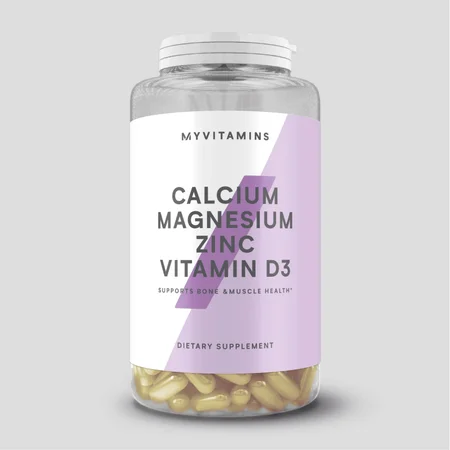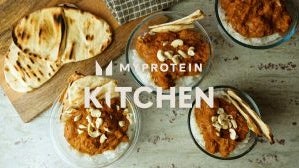What to Eat When Sick | Your Top 11 Foods
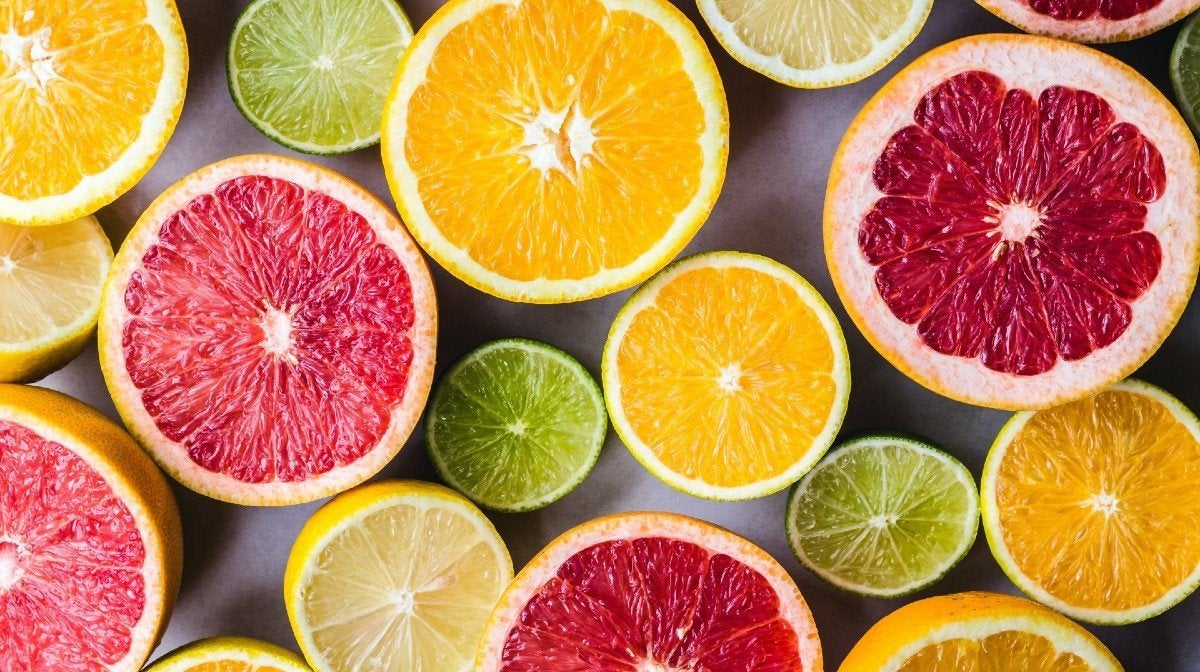
When you’re not feeling well, your doctor will likely suggest standard ways to get better faster - lots of rest, plenty of fluids, the usual tactics. But there are also certain foods that will speed up your recovery from the sniffles much more than others. Read on to find out what foods are natural remedies and which ones to avoid when you’re not feeling your best.
1. Citrus and other fruits
It’s a tale as old as time - vitamin C is the best nutrient to seek out when you’re sick, and most of us immediately think of oranges or orange juice. But there are other foods even higher in Vitamin C - like strawberries and red bell peppers. You can also get Vitamin C from many green vegetables, like broccoli or spinach.
Vitamin C is especially a superstar for colds and viruses, because it helps support the immune system and shortens recovery time. Fruits like berries also contain flavonoids, a powerful antioxidant that can decrease inflammation.

2. Chicken Soup
If your mum takes care of you when you’re sick, she’ll likely give you chicken soup or some other broth-based soup.
The warmth of the soup is comforting, but the high salt content in soups can actually help keep you hydrated and the broth is packed with amino acids. The well-cooked vegetables in soup are easy to digest and can be gentle on your stomach when you don’t have much of an appetite, like when you have the flu.

3. Garlic
Garlic has
It’s strong, pungent flavour can also help clear your sinuses. If you can’t stomach the idea of chewing on a few cloves of raw garlic, roast it and add it to any savoury foods you’re eating, or take a supplement. Garlic has the added bonus of improving heart health with consistent use.

4. Meat and Shellfish
This might seem like a weird suggestion, but meat and shellfish are the two highest sources of zinc, which has been proven to reduce both the length and severity of the common cold.
If you don’t want to eat meat or shellfish when you’re not feeling your best, a zinc supplement will suffice. But it’s not a bad idea to make sure you have a few servings of these zinc-packed foods each week to help keep your immune system working at its best.

5. Herbal Teas
Herbal teas are another naturopathic remedy for the common cold and other respiratory ailments. They are a more pleasant-smelling alternative to clear your sinus passages than garlic, and tea leaves contain high levels of antioxidants to fight off illness.
They are also packed with other plant-based compounds like flavonoids and vitamins that benefit overall health, especially during a bacterial infection of your sinuses or ears.

6. Honey
Honey is not only delicious, but very
Its high sugar content makes it not only delicious but also gives it antimicrobial properties - which is why it’s good in your cabinet for so long. Using honey from local bees can also help

7. Peanut butter
Not only is peanut butter an old wives’ tale for treating hiccups, but it can also be soothing to a sore throat, similar to honey.
As a plant-based protein source, it contains vitamins and minerals that are beneficial for overall health. Using a small spoonful can help when a cough is bothering you, and it’s super tasty too.

8. Electrolyte beverages
If you’ve lost a lot of fluid from a stomach bug, electrolyte beverages are the perfect way to slowly get some of your nutrition back in. They often contain a bit of sugar, which can provide some calories, while also replenishing sodium, potassium, and other electrolytes that are lost due to vomiting and diarrhoea.
Preventing dehydration is the best way to get your strength back, and these can be easy to stomach even when you don’t feel well.
If you'd rather get a quick fix of electrolytes, our supplement is ideal.
9. Coconut Water
If you don’t like the taste of traditional electrolyte beverages, coconut water can be a great alternative when you need to rehydrate your body. It is naturally packed with electrolytes and has a subtly sweet natural flavour that can be refreshing in the summer heat after a workout or when your stomach is upset.
Start with a little bit at a time to see how your stomach handles it; it can cause bloating for some people.

10. Rice
Part of the traditional ‘BRAT’ (bananas, rice, applesauce, toast) diet that you might think of when your stomach is upset, rice is a great way to get in some calories when you can’t stand the thought of any strong flavours.
It is easy to digest because of low fat content, gives you carbohydrates to help your metabolism keep moving, and is simple to cook and store. While bananas, applesauce, and toast are still options, rice is the classic example of a bland food that is pretty universally tolerated. Other bland foods to consider include crackers, oatmeal, farina.

11. Ginger
Ginger is another classic remedy for nausea
There are many options for ginger - from fresh, grated ginger in a juice or salad dressing, hard candies, supplements, or ginger ale soda.

Foods to avoid when you’re sick:
Greasy Foods
Foods that are greasy and fried are packed with fat, which slows down digestion and can lead to indigestion and an upset stomach. If you’re not feeling your best, these foods could make your symptoms worse.
High fat foods slow down digestion, and fried foods are typically not the most nutritious.
Acidic Foods
While citrus fruit can provide a boost of Vitamin C, they are often not the best choice for an upset stomach. Instead of acidic foods, choose bland options like the BRAT diet mentioned above, and fruits and vegetables that are lower in acid - like bananas or carrots.
Dairy Foods
While controversial, many people believe in limiting milk and milk products when you have a cold. The theory is that dairy foods increase mucus production, making it tougher to defeat a stuffy nose or clogged sinuses.
Alcohol
Alcohol rarely has any health benefit, especially not when you’re sick.
Instead of beer or wine, focus on nutritious foods and drinks to speed up your recovery and get back to feeling your best. Water is always a safe choice.
Extreme Temperatures
When you have a sore throat, hot beverages like tea or coffee or soup can be more irritating than cold beverages.
If you have the chills and a fever, cold smoothies or frozen fruit could make you feel worse. Consider your symptoms when deciding what foods to eat when you’re sick.
Take Home Message
While your doctor will always have the best advice on how to treat an illness, many potential treatments for things like seasonal colds, flus, and bugs are already in your kitchen. Take advantage of the healing powers of food the next time you’re not feeling well, and see if they help to get you back to tip top shape more quickly.
Interested in hearing more advice from our experts?
READ THESE NEXT:
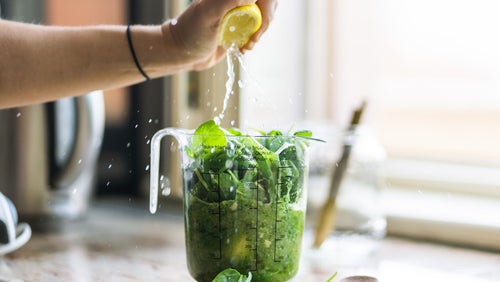
3 Proven Benefits of Vitamin A | What It can do for You
Carrots to see in the dark? Vitamin A holds the answer.
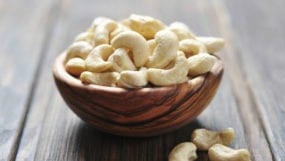
Are You Getting Enough Zinc? | 8 Food Sources of Zinc
If you're eating these foods, you might be ok.
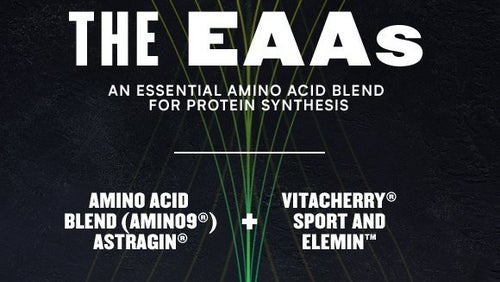
Everything You Should Know About EAAs – Are They Superior to BCAAs?
Here, we see how BCAAs stack up to EAAs.

Claire is a Registered Dietitian through the Academy of Nutrition and Dietetics and a board-certified Health and Wellness Coach through the International Consortium for Health and Wellness Coaching. She has a Bachelor of Science in Biology and a Master’s degree in Clinical Dietetics and Nutrition from the University of Pittsburgh.
Talking and writing about food and fitness is at the heart of Claire’s ethos as she loves to use her experience to help others meet their health and wellness goals.
Claire is also a certified indoor cycling instructor and loves the mental and physical boost she gets from regular runs and yoga classes. When she’s not keeping fit herself, she’s cheering on her hometown’s sports teams in Pittsburgh, or cooking for her family in the kitchen.
Find out more about Claire’s experience here.
1. Maggini, S., Wenzlaff, S., & Hornig, D. (2010). Essential role of vitamin C and zinc in child immunity and health.Journal of International Medical Research, 38(2), 386-414.
2. Rana, S. V., Pal, R.,Vaiphei, K., Sharma, S. K., & Ola, R. P. (2011). Garlic in health and disease. Nutrition research reviews, 24(1), 60-71.
3.Frederickson, C. J., Koh, J. Y., & Bush, A. I. (2005). The neurobiology of zinc in health and disease. Nature Reviews Neuroscience, 6(6), 449-462.
4.Trevisanato, S. I., & Kim, Y. I. (2000). Tea and health.Nutrition Reviews, 58(1), 1-10.
